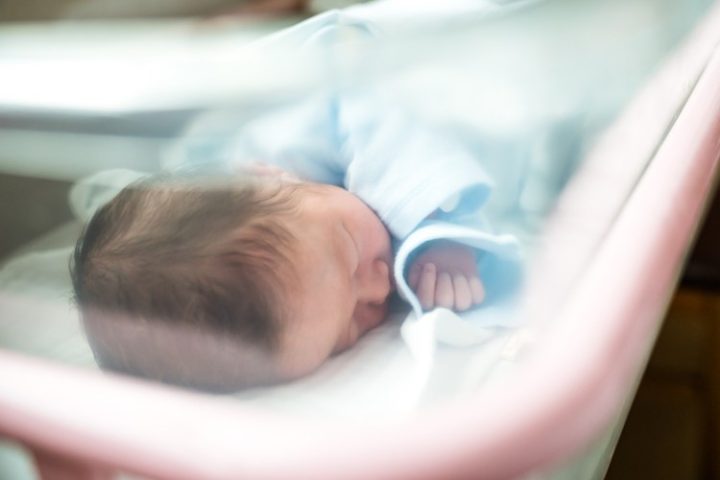
Australia’s strict coronavirus lockdowns have just claimed their youngest victims yet. In the last month, four newborn babies who could probably have been saved with surgery died because they could not be taken to another hospital under existing travel restrictions.
The babies, all of whom were suffering from heart conditions, were in the Women’s and Children’s Hospital (WCH) in Adelaide, the capital of the state of South Australia. According to InDaily, University of Adelaide associate professor John Svigos, an obstetrician, told a parliamentary committee Monday that “Adelaide was the only mainland capital city that did not have provision of pediatric cardiac surgery or a vital life-support machine known as Extra Corporeal Membrane Oxygenation (ECMO) Support Service, which replaces the function of the heart and lungs.”
Under normal circumstances, the babies would have been sent to the Royal Children’s Hospital in Melbourne, the capital of neighboring Victoria, where they could have been treated for their cardiac conditions. However, said Svigos, “in our current COVID-19 situation … the usual process of referral to the Melbourne cardiac unit is no longer tenable.”
There is some debate over which state’s restrictions made the transfer impossible. Victoria does not currently prohibit residents of other states from entering, but South Australia does. Its rules state: “Travelers from Victoria, other than approved categories of Essential Travelers, are not permitted to travel to South Australia.”
The Daily Mail reported that “Slaried [sic] Medical Officers Association chief industrial officer Bernadette Mulholland told The Australian that doctors told her ‘in these four cases, the issue was Victoria not being able to retrieve the babies.’”
But Victoria Premier Daniel Andrews said Wednesday, “There was a choice not at our end, but the other end for [the babies] not to be sent.”
The South Australian government has launched an investigation into the babies’ deaths. Deputy Chief Public Health Officer Michael Cusack “said the hospital would expect to report only six to 10 such cases, of very young infants with serious heart problems, each year,” wrote SBS News.
“Where we see four babies in a cluster, that is a cause for further investigation,” he said.
The lockdowns, while the proximate cause of the babies’ deaths, are not solely to blame. “One year earlier hospital staff called for … an upgrade to the chronic lack of pediatric cardiac services available at the hospital but the business case was rejected because it was not seen to be economically viable,” noted the Daily Mail.
Svigos — who is also the head of the WCH Alliance, a group that lobbies for more state funding of the hospital — said South Australia spends $5 million a year transferring children to other states for cardiac surgery and ECMO services. He claimed the state could establish its own services at WCH for an initial cost of $6 million and an additional annual outlay of $1 million.
Svigos further claimed that the hospital’s new Special Baby Care Unit had been sitting idle for more than two months at a cost of $5,000 a day and that “$12.3 million [would be] required to replace outdated or repaired surgical equipment at the hospital.”
Mulholland, meanwhile, testified that the hospital was understaffed and overworked, with employees on the verge of “burnout.”
“I shall leave it to you to imagine the profound effect of these deaths on the parents, their families and the dedicated medical and nursing staff dealing with these tragedies,” Svigos testified.
Connie Bonaros, chairwoman of the parliamentary committee, called for an “immediate, urgent, and independent investigation” into the babies’ deaths, calling the situation at WCH “completely and utterly unacceptable and reprehensible.”
“It is putting cost savings ahead of human lives,” she said. “It is a national disgrace.”
But it is a disgrace for which government, not doctors and nurses, bears full responsibility. South Australia runs the hospital and has known of its inability to treat children with heart conditions for years. The states imposed various travel restrictions to combat a virus with a survival rate of well over 99 percent. Had these governments acted responsibly, the four babies — and, perhaps, countless other victims of the lockdowns, both visible and invisible — might still be alive today.



